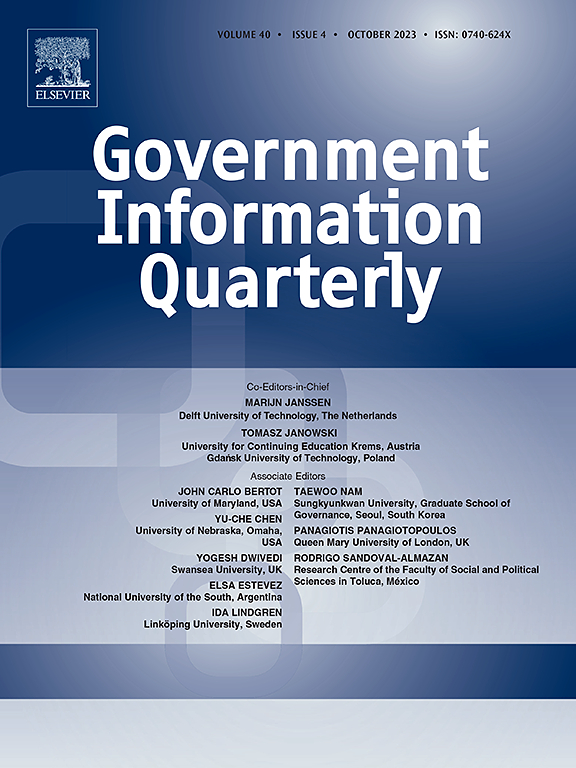富人和穷人:公民技术和政府回应的途径
IF 10
1区 管理学
Q1 INFORMATION SCIENCE & LIBRARY SCIENCE
引用次数: 0
摘要
随着公民生活转移到网上,学者们质疑这是否会加剧由于获取技术的不同而导致的政治不平等。然而,这种担忧通常假设不平等的参与不可避免地导致不平等的结果:如果在线参与者不具有人口代表性,那么参与的结果将使参与的群体受益,而不参与的群体则处于不利地位。在本文中,我们结合了之前八项研究的结果和新的分析,追踪了数字不平等的过程,从数字鸿沟到四种不同形式的在线参与的政策结果:巴西参与式预算的在线投票,英国通过Fix My Street的在线地方问题报告,冰岛的众包宪法起草,以及在change.org上进行的132个国家的在线请愿。在每一个案例中,从1)数字鸿沟到2)在线参与的不平等,再到3)通过平台提出的要求的不平等,再到4)参与结果的不平等,都是链条上的假设环节。在每一个案例中,由于平台的制度特征和周围的政治进程,这种联系都破裂了。这些结果表明,有必要检查在线参与的所有步骤及其转化为政策,以了解不平等是如何产生的。关于参与方面的不平等总会转化为结果上的不平等的简单假设,在实践中并没有得到证实。本文章由计算机程序翻译,如有差异,请以英文原文为准。
The haves and the have nots: Civic technologies and the pathways to government responsiveness
As civic life has moved online, scholars have questioned whether this will exacerbate political inequalities due to differential access to technology. However, this concern typically assumes that unequal participation inevitably leads to unequal outcomes: if online participants are unrepresentative of the population, then participation outcomes will benefit groups who participate and disadvantage those who do not. In this paper, we combine results from eight previous studies and new analysis to trace the digital inequality process from the digital divide through to policy outcomes for four different forms of online participation: online voting for Participatory Budgeting in Brazil, online local problem reporting in the United Kingdom through Fix My Street, crowdsourced constitution drafting in Iceland, and online petitioning across 132 countries on change.org. In every case, the assumed links in the chain from 1) the digital divide to 2) inequalities in online participation to 3) inequalities in demands made through the platform to 4) inequalities in participation outcomes. In each case, the link broke down because of the platform's institutional features and the surrounding political process. These results show that it is necessary to examine all the steps of online participation and its translation into policy to understand how inequality is created. The simple assumption that inequalities in participation always translate into the same inequalities in outcomes is not borne out in practice.
求助全文
通过发布文献求助,成功后即可免费获取论文全文。
去求助
来源期刊

Government Information Quarterly
INFORMATION SCIENCE & LIBRARY SCIENCE-
CiteScore
15.70
自引率
16.70%
发文量
106
期刊介绍:
Government Information Quarterly (GIQ) delves into the convergence of policy, information technology, government, and the public. It explores the impact of policies on government information flows, the role of technology in innovative government services, and the dynamic between citizens and governing bodies in the digital age. GIQ serves as a premier journal, disseminating high-quality research and insights that bridge the realms of policy, information technology, government, and public engagement.
 求助内容:
求助内容: 应助结果提醒方式:
应助结果提醒方式:


